Pakistan and its Image Problem: Eric Schmidt: ProPakistani |  |
- Pakistan and its Image Problem: Eric Schmidt
- Use Facebook on Phones for Free With Mobilink Jazz, Jazba
- Nokia, At Last, Gets its Pakistan Specific Website
- Branchless Banking Transactions Hit Rs. 85 Billion Mark During Jan-March 2012
| Pakistan and its Image Problem: Eric Schmidt Posted: 21 Jun 2012 10:19 PM PDT
Without mentioning much about what he achieved or wanted to achieve from this visit, Eric wrote a note on his Google Plus page narrating the potentials and problems of Pakistan. As mentioned above, Eric decided not to reveal any of the details about his meetings with top leadership of Pakistan during this stealth visit, neither Google has issued an official statement so far – something that Pakistani media has been demanding since he departed. Eric's Below note about Pakistan is very constructive and well observed – I would say – which could win him a lot only if Eric was a Journalist/reporter. As an executive chairman of Google, an internet evangelist and top preacher of open web, we had different expectations from him. But that's okay – what he wrote is worthy as well. Read below what Eric had to say about Pakistan on Google Plus page:
Related posts:
To read more, click: Pakistan and its Image Problem: Eric Schmidt |
| Use Facebook on Phones for Free With Mobilink Jazz, Jazba Posted: 21 Jun 2012 10:18 PM PDT
All Mobilink prepaid customers can use Facebook Zero (0.facebook.com) on their mobile phones without paying anything. Facebook Zero is a project by Facebook in which it partners with network carriers, around the world, to offer their customers a light weight version of Facebook at no charge. Customers need to on to 0.facebook.com from their phone browsers (on supported networks, Mobilink in this case) and get connected to the free and fast version of Facebook. Facebook Zero includes all key features of the standard Facebook mobile site, and allows you to update your status, view your News Feed, Like or Comment on posts, send and reply to messages, or write on your friends’ Wall just as you do on regular Facebook.com. Mobilink had earlier launched Facebook Zero in 2010, which they re-launched now with enhanced features. Ufone also offered Facebook Zero for limited time. The following Terms & Conditions apply to the usage of Facebook Zero offer:
Related posts:
To read more, click: Use Facebook on Phones for Free With Mobilink Jazz, Jazba This posting includes an audio/video/photo media file: Download Now |
| Nokia, At Last, Gets its Pakistan Specific Website Posted: 21 Jun 2012 10:15 PM PDT
As pointed out by ProPakistani earlier, Nokia didn't had its Pakistan specific website at a time when every other country had dedicated Nokia websites. The Nokia Pakistan website follows the template and layout style found in the Nokia Global and other regional Nokia websites. Pakistani consumers can now log onto the Nokia Pakistan website www.nokia.com/pk and find information about products, apps, consumer support, store finder and Nokia contact information relevant to Pakistani consumers. The website has cataloged all the latest mobile phones that are available in Pakistan; giving the potential buyers the ability to compare a set of different mobile phones to help them choose just the right one for themselves. The website also offers a dedicated tab for a list of latest applications available on Nokia Store and for the user convenience another important feature is the Store finder, which directs a potential consumer to a nearby Nokia retail outlet/care center based in selected location. The website also provides support for Nokia devices including software updates, product fixes and a discussion forum where consumers can get answers to their queries and general product/OS specific information. The support section of the website also offers contact details where consumers can raise queries or get in touch with the Nokia team for product related information. "Nokia's localized website for Pakistan will aid us in offering enriched services to our loyal customer base that is increasing in Pakistan every day, so every day we are looking for new and better ways to let them enjoy an enriching mobility experience" said Adeel Hashmi, Head of Communications, Nokia Pakistan & Afghanistan. "Nokia is the leading mobile phone brand in Pakistan – while it is a great position to be at, it also brings in added responsibility to constantly push boundaries. In this context, a Pakistan specific Nokia website doesn't just provide information but brings together solutions that accentuate what we call 'connecting to what matters the most'." Related posts:
To read more, click: Nokia, At Last, Gets its Pakistan Specific Website |
| Branchless Banking Transactions Hit Rs. 85 Billion Mark During Jan-March 2012 Posted: 21 Jun 2012 10:00 PM PDT Branchless Banking has been on the rise, the trend has shown some sluggishness in January-March 2012 quarter but overall turnover remained positive. During the Quarter ending March 2012, more than 25 million transactions worth Rs. 85 billion (USD 938 million) have been processed through branchless banking channels. Number of transactions and the transacted value has increased by 23% and 7% respectively during the quarter, reported State Bank of Pakistan. Branchless Banking Transactions remained Rs. 79.4 Billion During Sep-Dec 2011 Growth in agent's network and number of mobile wallets during the quarter was 19% and 14% respectively. The number of registered m-wallets has reached to 1.03 million at the end of the March 2012, in which the number of active m-wallets is about 53%. Level 1 accounts are almost 86% of total m-wallet accounts while Level 0 accounts (a category which was allowed in June 2011 by SBP) are only 7%. In addition, 5,573 debit cards have also been provided to mobile account holders, indicating efforts to create value proposition in m-wallets. Growth rate of m-wallets stood at 14 %, showing some slow-down compared to the last quarter when the growth rate was around 40%. Similar trend is observed in deposits value. The less-than-expected growth rate in m-wallets is owed to the fact that only 23% of the total active agents (around 24,101) are authorized by banks to open the m-wallet accounts. The growth expectation in coming quarters is, however, fairly high as the largest brand of the country is in process of technology up-gradation for account opening, forth which it will start registration of customers for Level Zero Account. Easypaisa and Omni are progressively exploring avenues to increase the attractiveness of m-wallets to the customers and offering them new services such as purchasing air-tickets, receiving salaries/ pensions, utilizing ATM through debit cards, and internet banking. Moreover, few other banks are likely to start their BB operations soon. BB Transactions Growth ContinuousDuring the Quarter ending March 2012, more than 25 million transactions worth Rs. 85 billion (USD 938 million) have been processed through branchless banking channels. Number of transactions and the transacted value has increased by 23% and 7% respectively during the quarter. The growth in number of transactions is mainly due to the increasing volume of bill payments, person to person fund transfers, and airtime top-ups, which accounts for 42%, 32% and 10% respectively. Similarly, the growth in value of transactions is again owed largely to P2P payments. All other categories have either experienced slightly negative growth or have contributed a small share in total value. While considering share in total value, all bulk payments constitute almost 50% of the total value of transactions followed by P2P payments (36%) and Bill payment (12%). Growth has been observed in loan repayment transactions as Rs. 312 million were collected through BB agents. Both models (Easypaisa and Omni) are trying to increase their linkages with microfinance providers to allow microfinance borrowers to use BB channels for repayment of loans. Moreover, volume of salary disbursement has also increased mainly due to Easypaisa's arrangement with government organizations for salary disbursement. Around Rs.13.8 billion have been transferred on account of G2P payments through the existing agents' based banking. In this current issue, G2P transactions have been separately incorporated in Table 4, which were previously shown as part of the Account to Person transactions. Upcoming BB Solutions:The Waseela Microfinance Bank Limited, a subsidiary of M/s Orascom, has commenced its business operations as a nationwide microfinance bank. The bank has opened its first branch in Islamabad and aims to enter into Branchless Banking business to increase the outreach of financial services in Pakistan shortly. Habib Bank Limited has recently obtained permission from SBP to start pilot branchless banking services. SBP has also allowed Faysal Bank to pilot launch its mobile banking services to its existing customer base. Two other commercial banks, Meezan Bank and Bank Al-Falah, are also keen for entering into branchless banking services. Related posts:
To read more, click: Branchless Banking Transactions Hit Rs. 85 Billion Mark During Jan-March 2012 |
| You are subscribed to email updates from Pro Pakistani To stop receiving these emails, you may unsubscribe now. | Email delivery powered by Google |
| Google Inc., 20 West Kinzie, Chicago IL USA 60610 | |


 7:59 PM
7:59 PM
 SS.A
SS.A


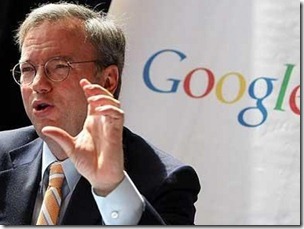
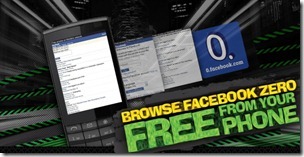
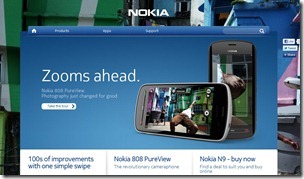
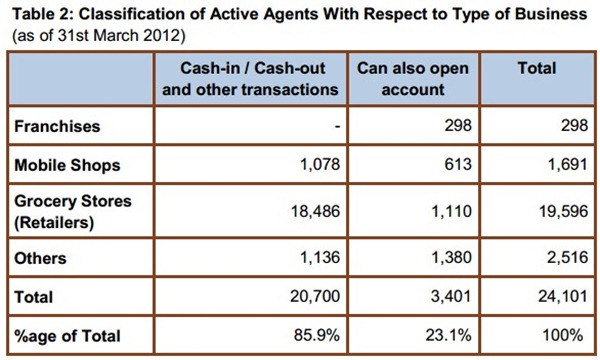
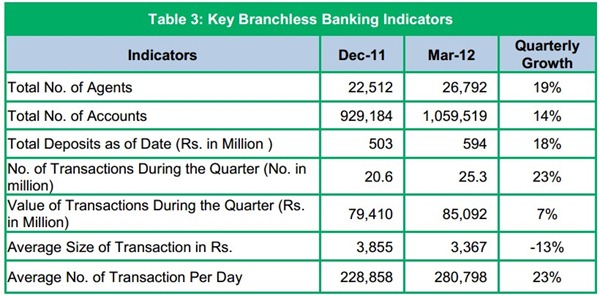
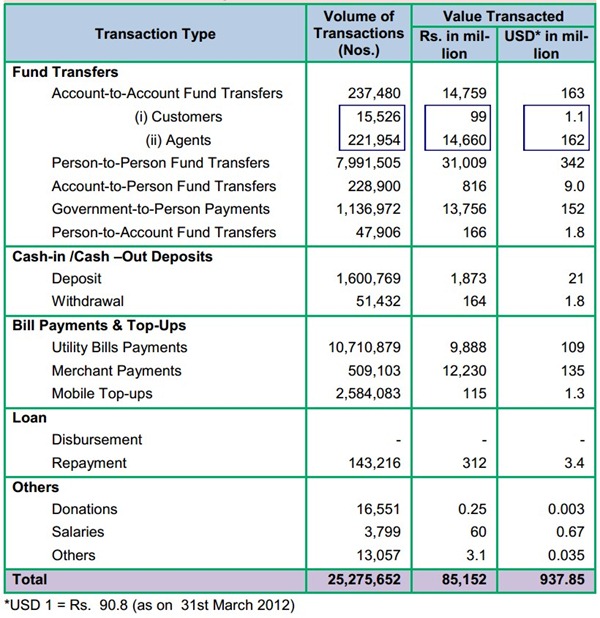
0 comments:
Post a Comment